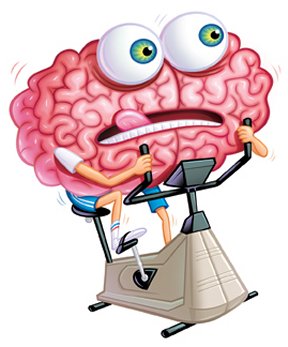Is brain fitness scientifically proven to improve cognitive skills?
Here is the fourth installment of questions from Brain Fitness 101: Answers to Your Top 25 Questions. To download the complete version, please click here.
Question:
Is brain fitness scientifically proven to improve cognitive skills?
Key Points:
- Neuropsychology and the understanding of brain mechanisms of cognition took off in 1861 when Pierre-Paul Broca published a paper on brain localization of language.
- Cognitive training and behavioral therapy has been in use in hospitals and the military for 40 years or more.
Answer:
Thanks to new neuroimaging techniques, said to be “as important for neuroscience as telescopes were for astronomy,” and other state-of-the-art research methods, neuroscientists are finding that exercising our brain influences the generation of new neurons and their connections.
Previous beliefs about our brain and how it works have been proven false. Some beliefs that have been debunked include claims that adult brains cannot create new neurons (proven false by Princeton scientist Dr. Elizabeth Gould, UC-Berkeley scientists Dr. Marian Diamond and Dr. Mark Rosenzweig, and Salk Institute’s Dr. Fred Gage), notions that working memory has a maximum limit of 6 or 7 items (proven false by Karolinska Institute’s Dr. Torkel Klingberg), and assumptions that the brain’s basic processes can not be reorganized by repeated practice (proven false by UCSF’s Drs. Paula Tallal and Michael Merzenich).
The “mental muscles” we can train include attention, stress and emotional management, memory, visual/spatial skills, auditory processes and language, motor coordination, and executive functions like planning and problem solving.
While there is much basic research around neuroplasticity, cognitive reserve, cognitive training, and neurofeedback, that research alone is not enough to show the effect of specific brain fitness programs. To be useful, the specific skills exercised in brain fitness programs need to transfer into our overall cognitive abilities and enable you to have a better memory, concentration, decision-making, planning skills, reaction time, capacity to learn, ability to manage stress, or other mental abilities.
The scientists who have created the programs we feature at SharpBrains have published extensive studies showing the effectiveness of their products.
Further Reading
- Gopher D, Weil M, Bareket T. Transfer of skill from a computer game trainer to flight. Human Factors. 1994;36,387–405.
- Klingberg T, Fernell E, Olesen P, et al. Computerized Training of Working Memory in Children with ADHD – a Randomized, Controlled Trial. J American Academy of Child and Adolescent Psychiatry. 2005;44:177–186.
- McCraty R, Barrios-Choplin B, Rozman D, Atkinson M, Watkins A. The impact of a new emotional self-management program on stress, emotions, heart rate variability, DHEA and cortisol. Integrative Physiological and Behavioral Science. 1998;33:151–170.
- Olesen P, Westerberg H, Klingberg T. Increased prefrontal and parietal brain activity after training of working memory. Nature Neuroscience. 2004;7:75–79.
- Scarmeas N, Stern Y. Cognitive reserve and lifestyle. J Clin Exp Neuropsychol. 2003;25:625–33.
- Willis SL, Tennstedt SL, Marsiske M, et al. Long-term effects of cognitive training on everyday functional outcomes in older adults. JAMA. 2006;296:2805–14.


